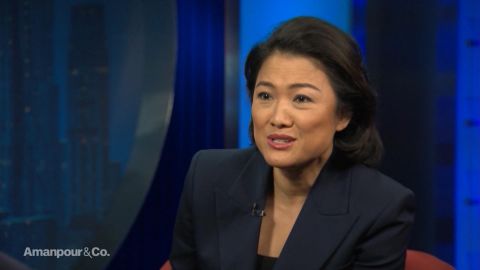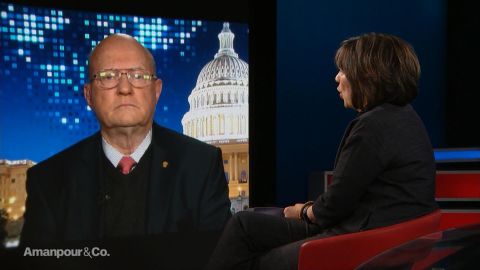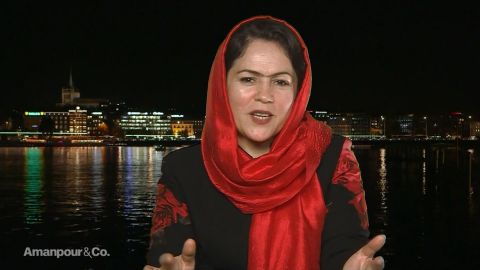Read Transcript EXPAND
FAWZIA KOOFI: You know, Christiane, I think what makes current situation different is there is a kind of consensus on the urgency for a peace in Afghanistan. And we would like to finally end this 40 years of war which we have had enough of it. And you were here during the Taliban, so you know how the pain people of Afghanistan went through. However, there are two different views. One different — one is the current president of Afghanistan who oppose the peace process and he has his own agenda because he will be running for presidential election and he sees his kind of power and, you know, continuity of his job at risk. But then there is another discussion at the Afghan political elites and — and people and especially women and civil activists and civil society level about, you know, the future of their engagement if a political deal is to be made. Because you know, I lived all my life in Afghanistan during — including during the Taliban time and we all know what it means. Taliban basically during their time, woman presence was reduced to minimum and they were basically invisible. And then I think the position of Taliban in these peace talks are that they don’t want to talk to the Afghans, they don’t want to talk to the Afghan women and they want an Islamic rights for women. As somebody who left during Taliban and I know what their interpretation is. We’re very much worried, especially that we have gained so much over the past 18 years. And the society in Afghanistan has transformed to the level that it will be very difficult to bring it back to the town where we started in 2000–
CHRISTIANE AMANPOUR: Right.
KOOFI: — when the Taliban government were just withdrawn. So I think yes, we want peace, but that inclusive peace where the public and of course sustainable where the public, especially the women voices are heard and they are part of the process.
AMANPOUR: Right.
KOOFI: And–
AMANPOUR: Fawzia–
KOOFI: — the issues that we have achieved and gained should be regarded as nonnegotiable issues.
AMANPOUR: So, how do you make sure that happens because right now it seems to be a process between the United States and the Taliban? As you have said, the Afghan government is not included yet. And women are not included around the peace table. And at the same time, President Trump says that he will pull out the forces if there is a sustainable peace deal. And he’s — the American people want the forces back. What is the risk to you right now, do you think?
KOOFI: I understand there are many perhaps anti-Afghanistan war who want the troops to be pulled out. However, I think we need to understand that the international community was in
About This Episode EXPAND
Christiane Amanpour speaks with Juan Guaidó about his fight to oust Venezuelan President Maduro; Lawrence Wilkerson about President Trump’s disagreements with his staff; and Afghan MP Fawzia Koofi about the state of affairs in Afghanistan. Walter Isaacson speaks with Zhang Xin, CEO of SOHO China, about U.S.-China relations and her remarkable past.
LEARN MORE



